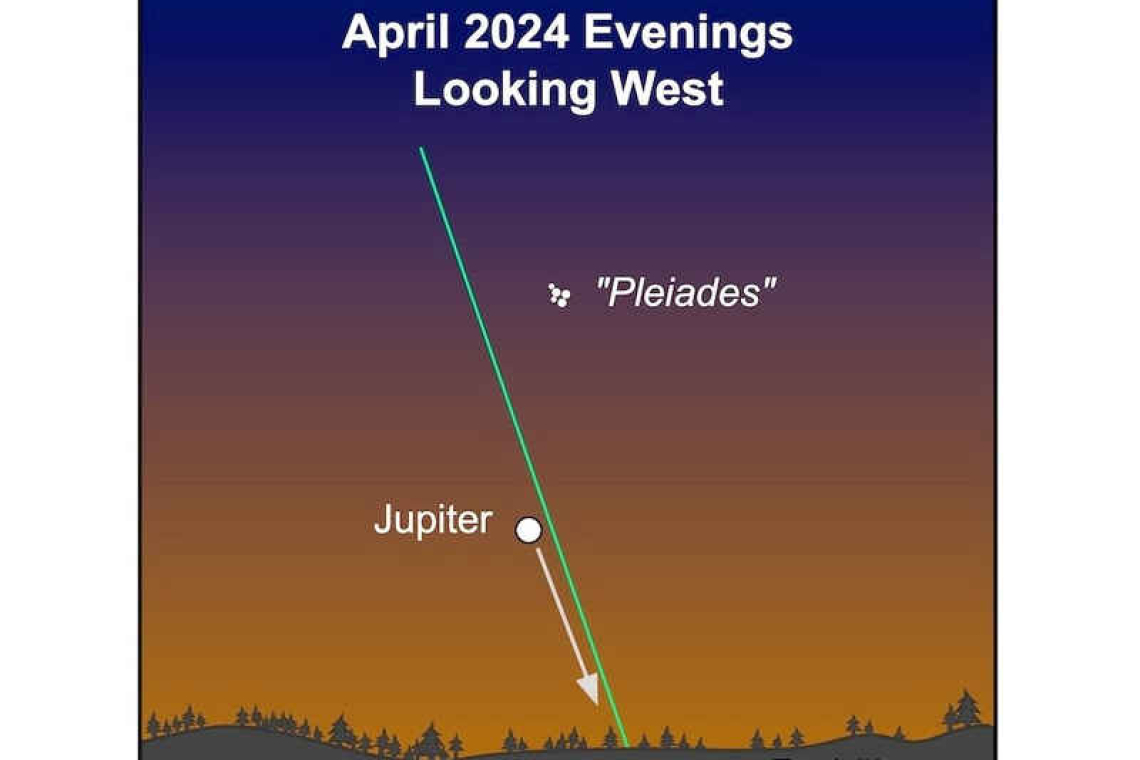~ St. Maarten’s Backyard Astronomy for April 19-21 ~
Sun rises at 5:51am
Sun sets at 6:30pm
Lunar phase: 2nd quarter waxing gibbous
Moon sets at 3:52 am
Moon rises at 4:00 pm
This weekend marks the return to Meteor Shower season, starting first with the Lyrids and next the Aquarids. The meteor showers are named for the constellation from which they appear to shoot out, called the radiant point. So the Lyrids appear to emanate from the constellation Lyra, the Harp. In May, we will have a chance to see the Aquarids which seem to shoot out from the constellation Aquarius, the water carrier.
This weekend your best chance to see a “shooting star” is late Sunday (after 11:00pm) to early Monday (before dawn). Under ideal conditions, you might see 10 to 15 Lyrid meteors per hour; however, the Lyrids are known for sudden, unexpected surges that can bring rates of up to 100 per hour! The peak of the Lyrids is narrow, so no weeks-long stretches of meteor-watching, as with some showers. In 2024, the full moon falls on April 23 which means that the meteor watching will be somewhat affected by a bright waxing gibbous moon.
Other points of interest in this weekend’s night sky include the lovely gibbous moon which will be located high in the sky throughout the night hours. Just after sunset, you’ll see the moon rising in the southeast while Jupiter sets in the west, the two present a counterpoint worth appreciating. As darkness settles in, and Jupiter reaches the horizon, look for the constellations Orion, Gemini and Leo to line up in a row, following the path that Jupiter set.
By 1:30 in the morning, the moon will be past its highest point in the sky, and Leo will be leading the moon down to the western horizon. Following the moon, look for Virgo and Libra, and the tail end of the parade is Scorpius and Sagittarius. As the moon sets in the west, Saturn will be rising in the east, glorious symmetry in the heavens, vast and constant, offering beauty and hope to us here below.
Thank you for keeping up with the Night Sky articles, backyard astronomy designed for St. Maarten sky viewing. FYI: If you are out later on in the week, note that each star rises about four minutes earlier each day than written here, and the moon rises 50 minutes later. Night Sky is researched and compiled by Lisa Davis-Burnett. Earthsky.org is a key resource for information and images. Questions or comments? Email This email address is being protected from spambots. You need JavaScript enabled to view it.







